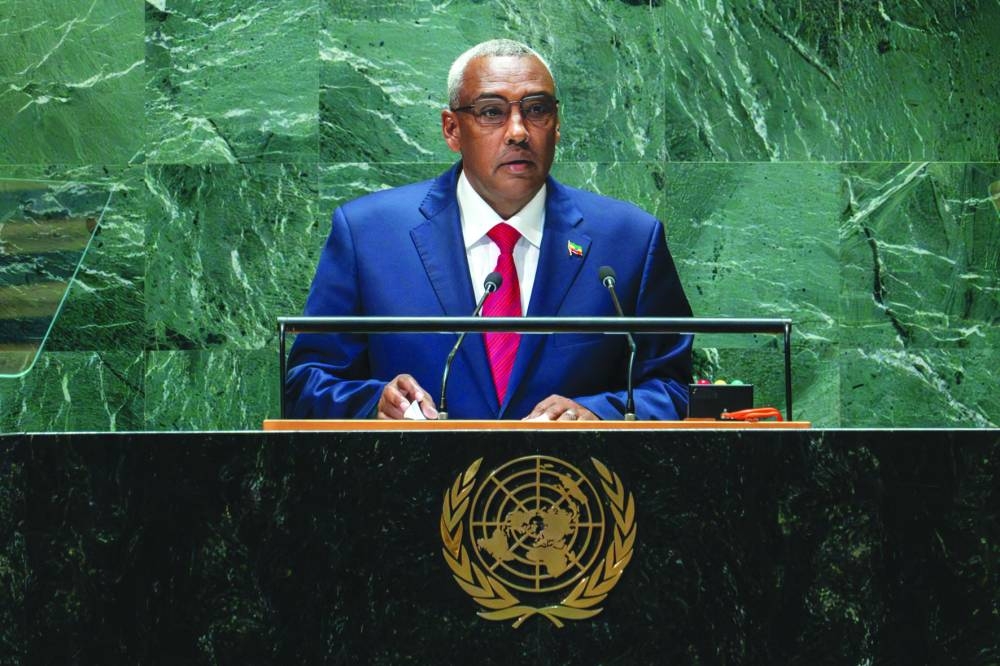Ethiopia told the UN yesterday it wanted quicker implementation of a peace deal in Tigray, including on disarmament of former rebels.
Ethiopia’s government and the Tigray People’s Liberation Front (TPLF) in November last year reached an accord in Pretoria that has largely halted a brutal two-year war.
“The implementation of the agreement continues to make significant progress despite some delays in the execution of the disarmament, demobilisation and reintegration process,” Deputy Prime Minister Demeke Mekonnen said in a speech to the UN General Assembly.
“There is a need to expedite this process and ensure its successful completion,” he said.
The TPLF, formerly Ethiopia’s dominant party, agreed to disarm under the Pretoria deal as government forces advanced.
An African Union monitoring mission confirmed in January that the TPLF had begun surrendering heavy weapons, and Tigray authorities said in July that more than 50,000 fighters had been demobilized, but the scale of implementation remains unclear.
Demeke said that Prime Minister Abiy Ahmed’s government, which has faced intense criticism including from the US over alleged human rights violations, remained “committed to consolidate peace and stability throughout the country.”
The agreement brokered in South Africa by the African Union “is a practical embodiment of African solutions to African problems,” Demeke said.
Complicating efforts, forces from the neighbouring region of Amhara still control Western Tigray, in a potentially dangerous flashpoint.
The Pretoria agreement called for the withdrawal of foreign forces, but residents say there remains a presence of troops from neighbouring Eritrea, which has been accused of some of the worst abuses after intervening against the TPLF.

Ethiopia’s Deputy Prime Minister Demeke Mekonnen speaks during the UN General Assembly (UNGA) at the UN headquarters in New York City, yesterday.
